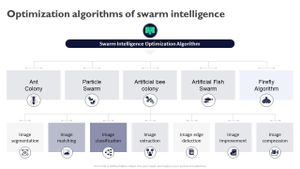A recent study reveals intriguing insights about anorexia nervosa, linking heightened symptomatology of the disorder with unique cognitive decision-making processes concerning future rewards. The research indicates individuals with higher levels of anorexia symptoms demonstrate both reduced delay discounting—a tendency to prefer immediate rewards over larger, delayed ones—and increased future-oriented thinking. These findings shed new light on the cognitive mechanisms driving the behaviors associated with anorexia nervosa, which is characterized by restrictive eating and intense preoccupation with weight loss and thinness.
Anorexia nervosa is one of the most challenging eating disorders to treat, often leading to severe health complications and one of the highest mortality rates among psychiatric conditions. The study, conducted during the COVID-19 pandemic, involved participants recruited online, comprising different symptomatology levels classified as high or low based on their eating disorder symptom scores. Prior research has shown individuals with anorexia often display significantly less impulsive decision-making when faced with the choice of delaying gratification for future rewards.
Interestingly, the researchers aimed to understand whether increased cognitive engagement with future outcomes, known as future-oriented cognition, is associated with anorexia nervosa symptoms and whether it can explain the observed reduced delay discounting behavior. An extensive series of psychological assessments were administered, which evaluated the various components of future-oriented thinking and self-reported symptoms of eating disorders, anxiety, and mood.
The results vividly illustrated the association between the degree of anorexia nervosa symptoms and decision-making behavior: individuals with higher symptomatology showed not only reduced delay discounting but also significantly improved future-oriented cognition. According to the authors of the article, "Individuals with anorexia nervosa symptomatology show reduced intertemporal discounting." This is particularly noteworthy as it contradicts trends typically observed across other psychiatric disorders, where individuals often exhibit heightened impulsivity.
To support this finding, the researchers provided evidence demonstrating how future-oriented cognition may mediate this reduced delay discounting. The authors noted, "Future-oriented cognition may underlie reduced delay discounting," connecting the cognitive style of individuals at risk for anorexia with their decision-making processes. Those with heightened symptoms also tended to have more vivid imaginative capacities toward future outcomes, allowing them to assess rewards more favorably when delaying gratification.
Despite the outstanding contributions of this study, the researchers highlighted factors such as subjective time perception and mood differences, which had no significant effect on the results. Interestingly, the data collected indicated no reliable differences between high and low symptom groups concerning how time was perceived, which raises questions about the specificity of cognitive alterations seen within anorexia nervosa.
The importance of these findings cannot be overstated, as they suggest potential strategies for treatment interventions aimed at altering maladaptive thought patterns associated with eating disorders. The authors emphasized, "Future-oriented cognition predicted reduced intertemporal discounting," indicating therapeutic avenues could focus on enhancing future-oriented thinking to reframe immediate reward perspectives, potentially aiding recovery.
Future research directions include exploring how these cognitive patterns evolve over time, especially among at-risk groups, and to assess the efficacy of cognitive interventions aimed at fostering future thinking to improve decision-making concerning health and recovery from eating disorders.
Overall, the study provides valuable insights linking cognition, behavior, and anorexia nervosa symptomatology, illustrating how unique decision-making processes related to future rewards differentiate individuals within this population.



